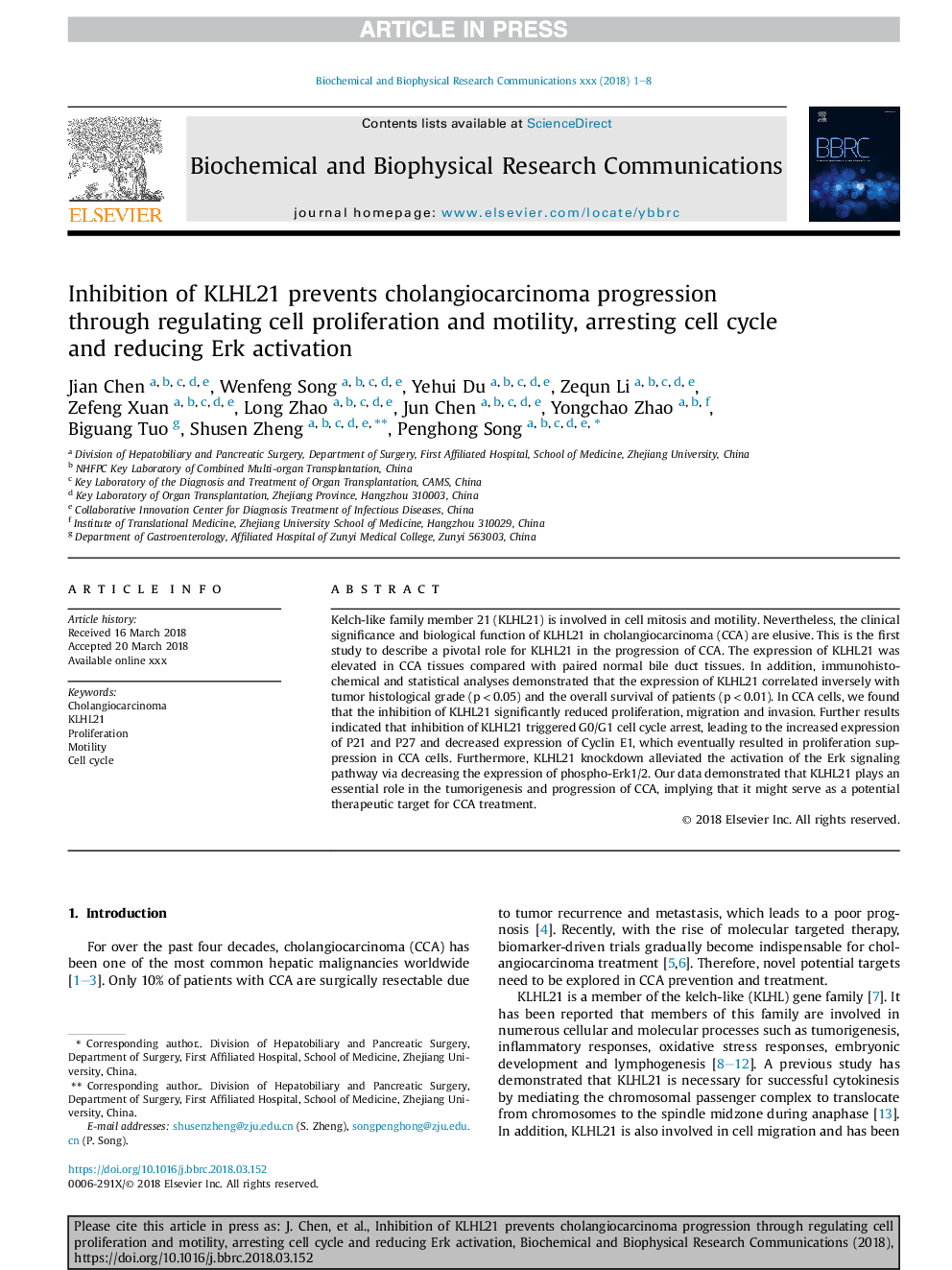| Article ID | Journal | Published Year | Pages | File Type |
|---|---|---|---|---|
| 8293000 | Biochemical and Biophysical Research Communications | 2018 | 8 Pages |
Abstract
Kelch-like family member 21 (KLHL21) is involved in cell mitosis and motility. Nevertheless, the clinical significance and biological function of KLHL21 in cholangiocarcinoma (CCA) are elusive. This is the first study to describe a pivotal role for KLHL21 in the progression of CCA. The expression of KLHL21 was elevated in CCA tissues compared with paired normal bile duct tissues. In addition, immunohistochemical and statistical analyses demonstrated that the expression of KLHL21 correlated inversely with tumor histological grade (pâ¯<â¯0.05) and the overall survival of patients (pâ¯<â¯0.01). In CCA cells, we found that the inhibition of KLHL21 significantly reduced proliferation, migration and invasion. Further results indicated that inhibition of KLHL21 triggered G0/G1 cell cycle arrest, leading to the increased expression of P21 and P27 and decreased expression of Cyclin E1, which eventually resulted in proliferation suppression in CCA cells. Furthermore, KLHL21 knockdown alleviated the activation of the Erk signaling pathway via decreasing the expression of phospho-Erk1/2. Our data demonstrated that KLHL21 plays an essential role in the tumorigenesis and progression of CCA, implying that it might serve as a potential therapeutic target for CCA treatment.
Related Topics
Life Sciences
Biochemistry, Genetics and Molecular Biology
Biochemistry
Authors
Jian Chen, Wenfeng Song, Yehui Du, Zequn Li, Zefeng Xuan, Long Zhao, Jun Chen, Yongchao Zhao, Biguang Tuo, Shusen Zheng, Penghong Song,
